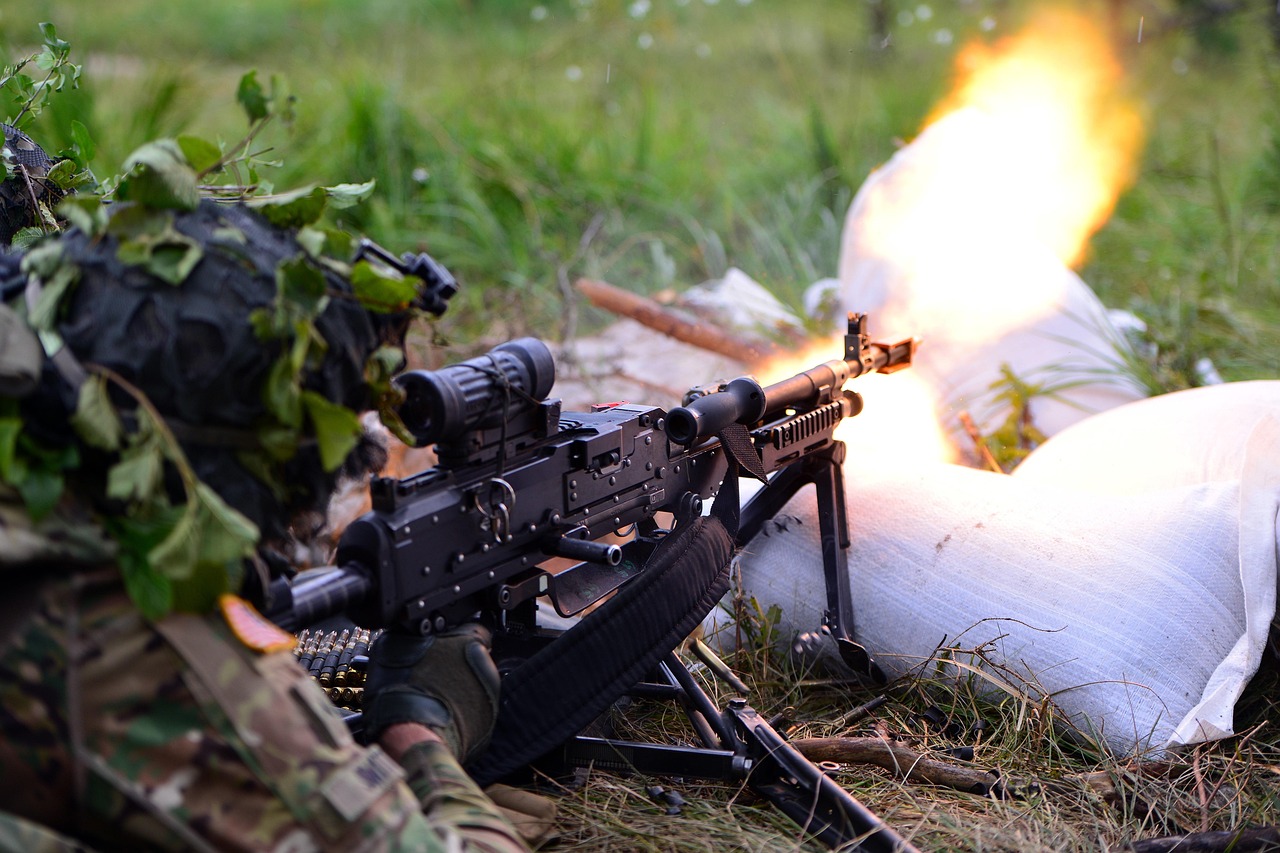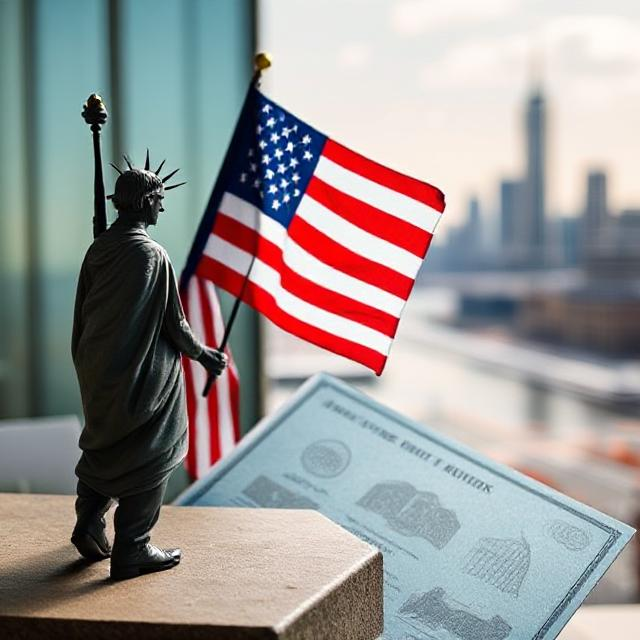
Trump is fumbling his tariff war, but US troubles are real and must solved, or the world will be in chaos. China is thinking after itself and offers no alternative
Chinese President Xi Jinping might feel relatively secure in the escalating tariff dispute with the United States, believing that President Donald Trump will falter first, and even if he doesn’t, Xi may not be overly concerned. Xi hasn’t raised the stakes in the game of brinkmanship that Trump has initiated. Instead, Xi has consistently matched Trump’s levels, challenging him to reveal his intentions.
Xi is not pressured by capitalists anxious about daily market losses. China exchanges material goods for dollars and pieces of paper, which, although important, doesn’t compare to the critical need for tangible goods, especially in a closed economy like China. This could potentially spike US inflation and lead to a significant recession. Several essays have already argued that China has escalation dominance on tariffs and have proved that, in the past years, with COVID and the real estate crisis, it has a high tolerance for pain.[1]
How long can Trump withstand pressure from American capitalists and consumers? Weeks? Perhaps months—but likely not years. China, however, is prepared for years of this challenge.
Recent developments, including Trump’s 90-day pause, hint that the US entered a trade war without a solid plan, prematurely assuming China would capitulate. China has been gearing up since 2019, when prior negotiations broke down. Xi could see upcoming months of trade skirmishes as opportunities for victory over the US. A political win, the US first approaching China about a negotiation, could place the US in a tight spot, regardless of how Trump might try to spin the narrative.
The US may need a robust strategy for engaging China or risks perilous outcomes.
Another layer to this situation is that China’s strategy focuses on self-preservation rather than global leadership. Unlike the former USSR, China lacks an alternative proposal to the current US-led global order—it’s inward-facing. Its substantial trade surplus strains the US and international economic systems, threatening to disrupt them without offering viable replacements. The US frames a global order that China does not.
Nonetheless, shifts have occurred; as Bill Emmott observed in La Stampa, Trump has damaged American credibility, inadvertently amplifying Xi’s influence and offering previously unanticipated opportunities.
The Initial Impact
The impact of Trumpian politics can be broadly categorized into three levels:
- A security level.
- An economic-commercial level.
- A cultural-ideological level, which may be the most immediate.
Security
The security dimension is causing significant anxiety among countries in Asia, such as South Korea and Japan, which are under threat from North Korea and wary of China. They fear a partial or total withdrawal of American security commitments. Should such a scenario arise, they may feel compelled to rearm. Naturally, other nations could follow suit if these countries pursue rearmament and acquire nuclear capabilities. Countries like Vietnam, Indonesia, or possibly even the Philippines—and Taiwan, too—could face a dilemma: should they acquire nuclear weapons or continue to rely on the United States?
Thus, the situation risks degenerating in every sense, both for these nations and China, which directly or indirectly becomes the target of this rearmament.
Many creative approaches are being considered. An attempt is underway to foster connections between Japan and South Korea with the UK or Europe, particularly as Russian and North Korean threats loom over both sides of the Eurasian continent.
The Russians still have a theoretical open war with Japan; no peace treaty has been signed yet, and territorial disputes remain unresolved. Moreover, North Korean soldiers are fighting alongside the Russians and, in exchange, receiving military missile technology and likely nuclear assistance. Consequently, the Ukraine issue has ramifications beyond Europe, echoing the Korean War of 1950, which also had consequences for Europe.
Economy
The second issue, which is more delicate and nuanced, concerns trade. Trump addresses his trade deficit through tariffs. However, in a modern context, tariffs are instruments that might have functioned effectively 100 or 200 years ago.
Today, their effects could differ with contemporary finance and trade dynamics. Raising tariffs by 20% or 30% may prompt other countries to shield themselves against such increases through various means—devaluing their currency, introducing direct incentives, offering tax deductions, or relocating part or all of their production to avoid tariffs. In other words, tariffs risk becoming a somewhat blunt instrument that is not well-targeted to achieve the desired outcomes.
Still, the repercussions are evident—the rise in inflation in America and the possibility of a recession. Moreover, there is brinkmanship with China that frightens the market and could humiliate Trump.
Culture
The third problem is cultural and related to rights. There is a drift in contemporary gender discourse that may seem a bit absurd to some. Debate over issues such as multiple bathroom options and removing male and female distinctions from language presents aspects that seem to challenge common sense. On the other hand, behind this cultural conflict, there could certainly be attempts to roll back the advancement of individual rights, which are not only part of Western culture but also a contribution that Western culture has made—and continues to make—to the world. For instance, the progress of women’s rights is a positive element and an essential indicator of a rights-respecting society and the Rule of Law worldwide.
Confusion and American Trade Gamble
In all this confusion, it is difficult to distinguish black from white. The fundamental problem is that the United States struggles to sustain such enormous defense spending while many allies act as free riders. This naturally strains the alliance and weakens America. Weakening America also undermines the allies, and this imbalance must be managed effectively. The trade issue is similarly at the root of everything. China and other countries with excessive trade surpluses with the US risk destabilizing the global economic and commercial order, which needs a restored equilibrium.
There should be a genuine effort of goodwill from allies toward the alarm raised by the United States to seek a reasonable solution. Indeed, the tone of the Trump administration may not facilitate dialogue. On the other hand, people in the American administration argue: yes, these problems have persisted for many years, and the courtesy of Biden or Obama did not yield results; thus, now let’s try to slam our fists on the table and see what happens.
Rights
The matter of rights is the most delicate issue and the one most susceptible to division—covering topics like women’s rights, LGBTQ+ rights, and the desire for a revised historical narrative. These may be crucial positive elements.
However, excesses in these areas can fuel reactionary forces dreaming of a return to feudal norms, relegating women to domestic roles, and pushing LGBTQ+ individuals into the shadows, which is unacceptable.
Across various domains, there seems to be a lack of balance and common sense, hindering the identification of precise solutions. This represents a significant risk.
Superficially, China appears content with the erosion of American power over the existing world order. However, it may be recognized that America, especially in Asia, has counterbalanced the fears and ambitions of other Asian countries. As a result, neighboring countries may either submit to China’s influence when America departs or resist, invoking a different reality where America was not malevolent toward Chinese policies.
Nevertheless, the global order is in crisis due to America’s economic, commercial, security, and technological struggles—especially as Chinese technology starts to rival America’s own, technology being synonymous with military strength.
Opportunities for China
This intricate scenario theoretically presents opportunities for China. However, seizing them would require China to assume significantly different responsibilities, and, at present, it does not seem inclined to embrace these new roles.
Capacity is not a linear concept—one simply does not possess it or lacks it. Does America have the capacity to manage global trade and security? Some supposed American nationalists claim it no longer does, whereas internationalists argue that it must uphold these responsibilities even if its capacity is diminished.
Thus, the discourse surrounding capacity is inherently nuanced. China’s offer of security raises subsequent questions. The recipient of this security must decide whether to accept it. Offering protection implies a cost—why should it be free? Would beneficiaries pay for security, and if so, how much? Do they trust China? Would China protect through force or leverage security as a guise for invasion and exploitation? These are distinct aspects yet to be fully explored, fraught with uncertainties at every turn.
Instability and Rebuilding
Nonetheless, the situation remains precarious. Rebuilding the world order serves America’s and its allies’ interests. There would be chaos without the order that has persisted for 80 years. Hence, monitoring initiatives by the United Kingdom and Japan is crucial; they seem to be the two main pillars. In addition, Germany, France, and South Korea are working to restore this order and somehow prompt the United States to recalibrate its approach.
These adjustments may already be underway. American experts, such as ambassadors Robert Joseph and Joseph DeTrani (see https://washingtonbrief.org/), express concern that Russia and China are fully engaged in rearmament and shifting the terms of the strategic confrontation away from those the US has recently encountered. Over the past 30 years, the US has adapted to threats from rogue states rather than addressing strategic existential challenges posed by Russia and China. Furthermore, the underpinnings of disarmament agreements—founded on the US and USSR’s collective pursuit of common good—have eroded. Today, Russia and China prioritize national interests, framing interactions as a zero-sum game, diminishing prospects for arms reduction or limitation agreements.
Finally, the ongoing war in Ukraine demonstrates that a nuclear power can engage in conventional warfare without resorting to nuclear weapons, instead practicing atomic brinkmanship. This reality alters numerous strategic calculations. Joseph advocates for a renewed focus on alliances, their expansion, and establishing red lines for adversaries while pursuing cooperation when interests align.
China
On the other hand, there is China.
Some 15 years ago in Beijing, there was a lot of talk about de-pegging the HKD and making the RMB the “international currency. ” Then the government realized that there were trillions of RMB circulating abroad and that its exchange rate was different from the one fixed by the Central bank. Then de-pegging the HKD would bring free fluctuations, and the currency could go up or down and crash… like all Asian currencies did in 1997-98. Beijing understood that the HKD in 1998 didn’t crash because of its strong peg to the US dollar. Thus, the two currencies could tumble if you de-peg the HKD from the US dollar or make the RMB fully convertible. Beijing didn’t touch the HKD and withdrew the RMB from foreign circulation.
Now, the international situation is worse, and if push comes to shove, China’s only response is to try to negotiate or go “North Korea.” Beijing is possibly ready for either. Currency war is not a real option, although currency guerrilla might be.
Here is another problem that Beijing has not solved. The RMB can not be freely exchanged, but Beijing doesn’t like the dollar. Barter trade is impossible (the USSR experience proved it), so what? Chaos? The reality is that China is undermining the present order (which can be fine), but unlike the Soviets 40 years ago, it doesn’t offer an alternative. The lack of an alternative and the undermining can lead to chaos or a backlash reinforcing the present US-centric order.
Chinese should offer a global alternative, not just trying to cut the best deal for themselves. Yet offering a global alternative and promoting it worldwide is tricky, as the Soviets showed. Yet without it, the old order is reinforced, or the world is thrown into mayhem.
[1] See https://www.axios.com/2025/04/11/china-options-retaliate-trump-tariffs-trade-war and https://www.foreignaffairs.com/united-states/trade-wars-are-easy-lose and https://www.bloomberg.com/news/features/2025-04-11/trump-and-xi-s-tariffs-are-preparation-for-a-us-vs-china-war-nobody-wants









